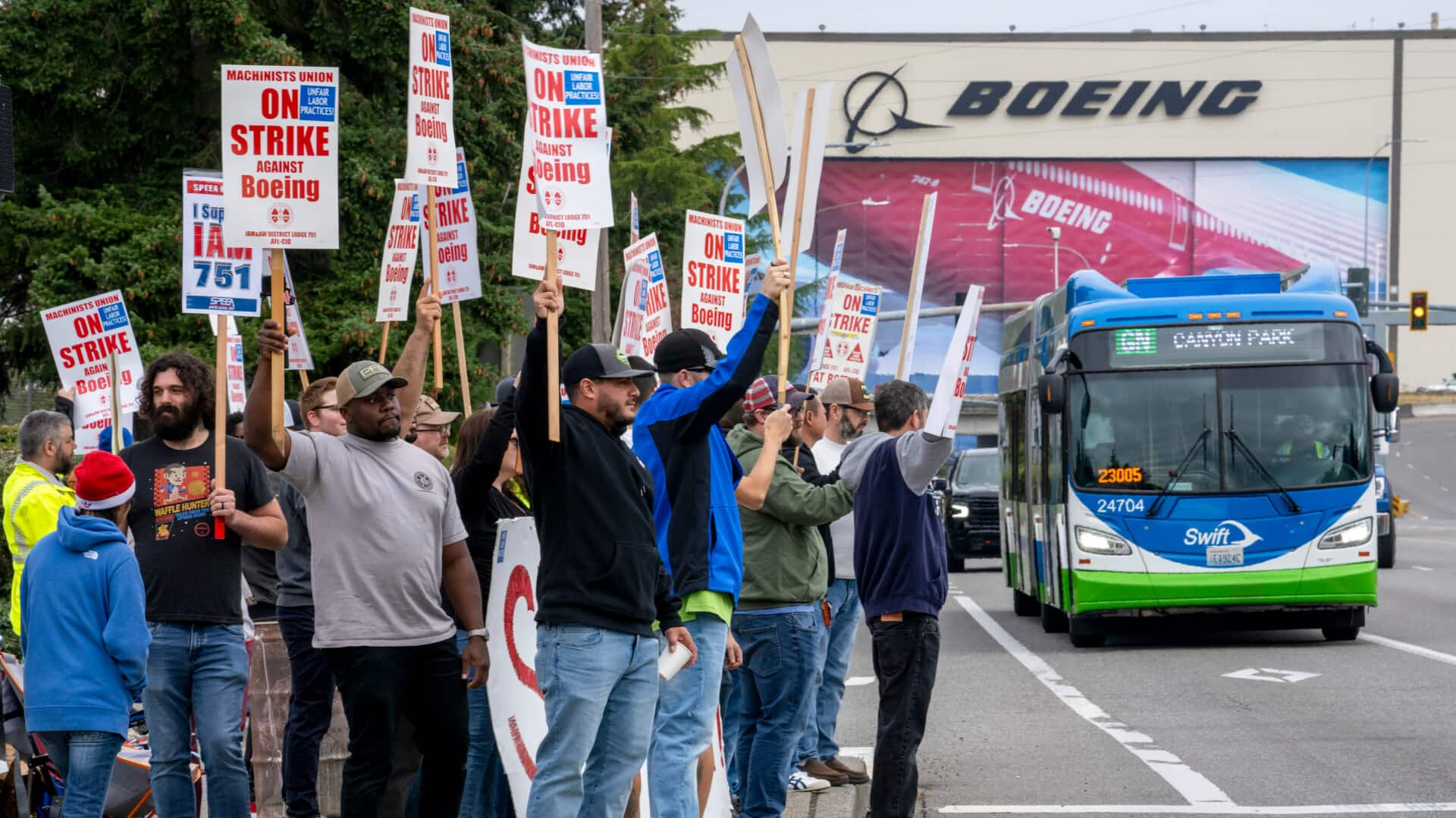
Boeing furloughs thousands of employees due to ongoing strike
What's the story
Boeing, the US-based aerospace giant, has initiated a temporary furlough of thousands of its executives, managers, and other staff members. The decision comes in response to an ongoing machinist strike that has significantly disrupted the company's operations. CEO Kelly Ortberg confirmed this development on Wednesday. A company spokesperson revealed that the furloughs would impact tens of thousands of Boeing employees across various roles and departments.
Strike details
Machinists reject labor contract, initiate strike
The furlough plan was announced less than a week after over 30,000 machinists from Boeing's Seattle and Oregon facilities rejected a new labor contract. An overwhelming 96% of these workers voted in favor of the strike, which began just after midnight on Friday. Despite ongoing negotiations between Boeing and the union, with a mediator involved, no resolution has been reached yet.
Contract rejection
Workers deem proposed raise insufficient amid cost of living hike
Boeing had proposed a 25% raise in the rejected contract, which was initially endorsed by the union. However, some workers expressed dissatisfaction with this offer. They argued that the proposed raises were not substantial enough to keep up with the rising cost of living in Seattle and did not include provisions for restoring their pensions. This discontent among workers has contributed to the ongoing strike and subsequent furloughs at Boeing.
Furlough strategy
CEO Ortberg announces furlough plan and pay cuts
In a staff memo, Ortberg outlined the furlough plan, stating that affected employees would be on leave for one week every four weeks for the duration of the strike. He also disclosed that he and his team would take "commensurate" pay cuts during this period. Despite acknowledging the difficulty of this decision, Ortberg emphasized its necessity for ensuring Boeing's long-term survival and navigating through these challenging times.
Cost reductions
Boeing implements cost-cutting measures amid financial pressure
Earlier this week, Boeing's CFO Brian West announced that the company would implement a hiring freeze and halt raises as part of its cost-cutting measures. The company also plans to temporarily lay off "non-essential contractors." West noted that the financial impact of the strike would depend on its duration, adding further pressure on Boeing's leadership as they grapple with safety and quality issues, including a near-catastrophic door plug blowout in January and $60 billion in debt.
Operational focus
Boeing prioritizes critical activities amid strike
Despite the ongoing strike and furloughs, Ortberg assured that "activities critical to our safety, quality, customer support and key certification programs will be prioritized and continue." This includes production of its 787 Dreamliners at a nonunion facility in South Carolina. The assurance comes as Boeing faces not only labor unrest but also rapid cash depletion, a struggling supply base, and a manufacturing quality crisis.
Financial fallout
Strike's financial impact on Boeing and suppliers
The strike could potentially cost Boeing over $100 million in daily revenue until a settlement is reached with its union, which represents more than 30,000 workers. A prolonged strike could lead to losses amounting to several billion dollars, further straining Boeing's finances and possibly leading to a downgrade of its credit rating. The financial repercussions of the strike are not limited to Boeing alone but extend to suppliers as well, particularly smaller parts makers.